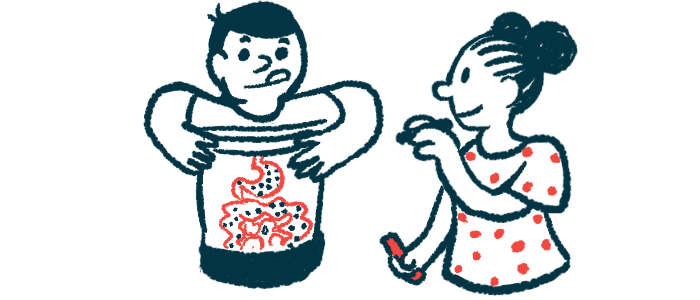Treatment for improving gut microbiome found safe in ALS
Oral therapy MaaT033 tested in Phase 1B trial in patients in France
Written by |

MaaT033, an experimental oral therapy for improving the gut microbiome — the collection of microbes, including bacteria, in the human gut — was deemed safe and well tolerated in people with amyotrophic lateral sclerosis (ALS) after two months of dosing.
That’s according to a new analysis from an independent data safety and monitoring board (DSMB) of the findings of an open-label Phase 1b trial testing the therapy candidate. The France-based trial, dubbed IASO (NCT05889572), tested Maat Pharma‘s donor-derived bacterial product in 15 adults with ALS. The data also showed that the introduced bacteria successfully grew in the patients’ digestive systems.
Based on these findings, the trial’s DSMB said it supports MaaT033 moving into a Phase 2 trial.
“I am encouraged by these Phase 1b results, which underscore the strong safety and tolerability profile of MaaT033 in ALS,” Gaëlle Bruneteau, MD, PhD, professor of neurology at Sorbonne University, and the trial’s principal investigator, said in a Maat press release.
Bruneteau added that “further studies are essential to fully explore the potential of the gut-brain axis in this disease,” but noted that “preclinical and clinical evidence suggests a role of the gut microbiota in the pathogenesis [disease development] and variability of ALS.”
Improving gut microbiome possibly may help ease neurodegeneration in ALS
ALS is a progressive condition in which the motor neurons that control voluntary movements become progressively damaged. There is no cure, and available treatments provide only limited benefits.
The gut microbiota, or microbiome, consists of a diverse collection of bacteria and other organisms that live in the digestive system. These bacteria support body functions like immune responses and brain activity regulation, so changes in the amount and type of microbes in the gut can impact health.
Research has shown that people with ALS have abnormal gut microbiota, and mouse models of the disease have suggested that microbiome dysregulation can exacerbate neurodegeneration and reduce survival.
Maat Pharma’s MaaT033 is designed to restore the microbiome balance in ALS patients to potentially help slow disease progression when given along standard ALS treatments. It delivers anti-inflammatory bacterial types derived from donors and developed using so-called pooling technology to ensure a high diversity of bacteria in each capsule.
The IASO study was a collaborative effort between leading ALS researchers and clinicians in France that also involved patient advocacy groups. Detailed findings will be presented at the 35th International Symposium on ALS/MND, taking place Dec. 6-8 in Montreal.
The ALS trial represents a potentially transformative milestone in our mission to improve patient survival through innovative microbiome-based immune modulation therapies.
Maat Pharma now plans to analyze the full study data, which should be available by early 2025, before determining the next steps for MaaT033. This may include a larger randomized trial, although such a study may depend on securing appropriate funding.
Hervé Affagard, CEO and co-founder of Maat Pharma, thanked all those taking part in the trial.
“I want to express my full gratitude to the patients participating in this study while battling a devastating disease,” Affagard said. “The ALS trial represents a potentially transformative milestone in our mission to improve patient survival through innovative microbiome-based immune modulation therapies.”
Affagard said work toward improving the gut microbiome is key “to address critical unmet medical needs across multiple therapeutic areas.”






